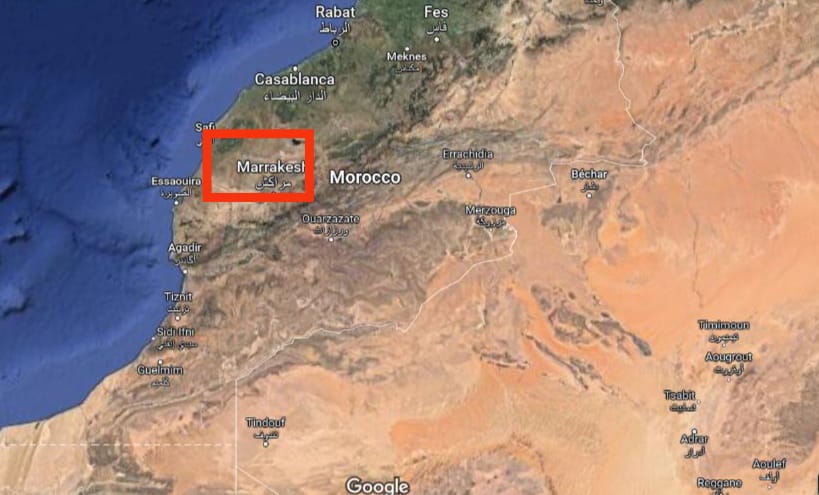A devastating earthquake with a magnitude of 6.8 struck Morocco late on Friday night, resulting in a tragic loss of life and widespread destruction. The country’s Interior Ministry reported that more than 1,000 people have already lost their lives, and over 1,000 individuals are injured, with many in critical condition.
The earthquake’s epicenter was located 72 kilometers southwest of the popular tourist destination, Marrakesh. This powerful seismic event, which occurred at 11:11 pm (2211 GMT), was the most potent earthquake to hit Morocco in its recorded history. The impact of the earthquake extended beyond the epicenter, with strong tremors felt in coastal cities such as Rabat, Casablanca, and Essaouira. Terrified residents described their experiences, with buildings visibly shaking and a sense of panic sweeping through the affected areas. Many people rushed out of their homes, seeking safety as the ground trembled beneath them.
The destruction caused by the earthquake was profound, leading to numerous and a significant loss of life. Experts noted that in regions where destructive earthquakes are infrequent, construction standards may not be robust enough to withstand such a powerful quake, contributing to the high casualty count. In the aftermath of the disaster, countless families found themselves sleeping outdoors due to fear of aftershocks. The earthquake left a trail of devastation, with collapsed walls and buildings reduced to rubble in its wake. The situation was particularly dire in Al-Haouz, the epicenter, and Taroudant provinces, where a substantial portion of the casualties occurred.
The international community responded with condolences and offers of assistance. European leaders, including Russian President Vladimir Putin, extended their sympathies. Arab countries, including Saudi Arabia, the United Arab Emirates, and Egypt, along with the Organization of Islamic Cooperation, expressed their solidarity with Morocco. Israel, which had established diplomatic ties with Morocco in 2020, pledged to provide any necessary assistance. While the earthquake was primarily centered in Morocco, it was also felt in neighboring Algeria, where authorities reported no significant damage or casualties. This tragic event serves as a grim reminder of the region’s vulnerability to seismic activity.
In 2004, Morocco experienced another devastating earthquake in Al Hoceima, resulting in significant loss of life and injuries. Similarly, in 1960, a powerful earthquake in Agadir claimed the lives of more than 12,000 people.
As Morocco grapples with the aftermath of this catastrophic earthquake, the focus turns to providing support and assistance to those affected, as well as addressing the urgent needs of the affected communities. The road to recovery will be long and challenging, but the resilience and solidarity of the people, along with international aid, will play a crucial role in rebuilding the affected areas and helping the survivors heal.

